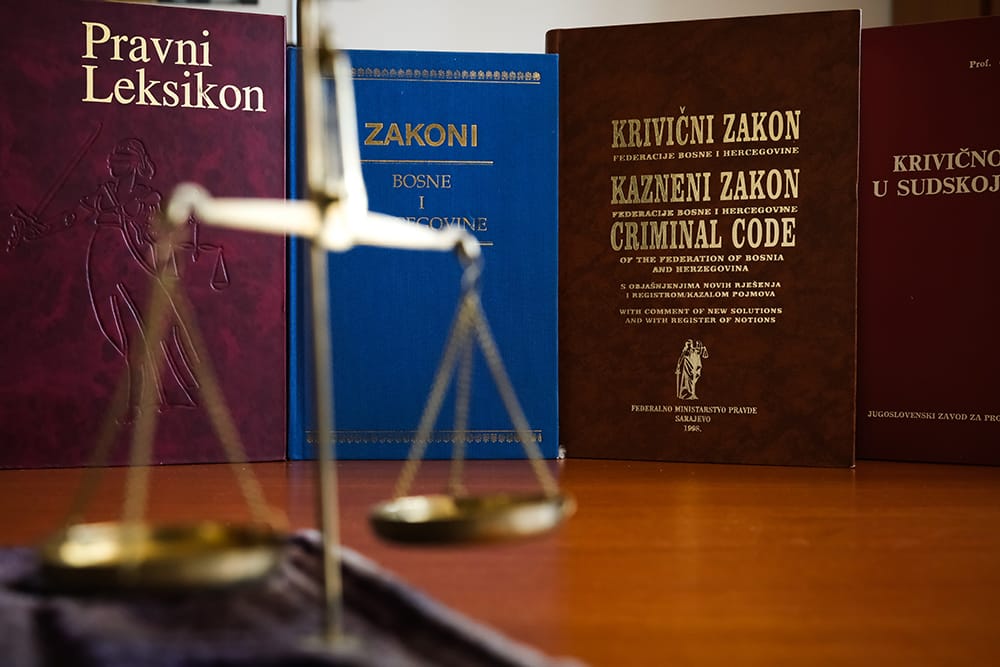CIN’s “Earnings of Court-Appointed Attorneys” database contains information on the total and individual earnings of attorneys appointed by the courts in cases across Bosnia and Herzegovina from 2005 to the end of 2022.
Over nearly two decades, the courts have paid at least BAM 167.1 million to court-appointed defense lawyers. This amount is likely higher, as not all courts have submitted data.
Since 2011, CIN journalists have been collecting data on these payments and updating them periodically. The latest update covers the period from 2017 to the end of 2022. A simple search of the database provides data on the total payments made by each court, as well as payments made by cantons and regions for the five highest-paid attorneys.
Ex officio defense is a right guaranteed by the laws in Bosnia and Herzegovina in cases where the accused does not retain a lawyer, is unable to defend themselves, is of poor financial standing, or faces a long-term prison sentence.
Under the law, during the first appearance before the court, the suspect must be provided with an official list of attorneys and allowed to choose their defense counsel. Judges and other employees in the judiciary are prohibited from influencing their choice. The court could appoint a defense counsel only if the accused did not choose one themselves.
However, in the latest research from 2024, CIN journalists tracked the changes in regulations that occurred after the stories were published. Thus, in Republika Srpska (RS), following amendments to the Criminal Procedure Code in 2021, it was stipulated that only the court presidents could appoint attorneys.
Additionally, due to the disparity in the number of cases assigned to attorneys willing to provide ex officio defense, there are increasing demands from attorneys to amend the existing regulations in the other entity as well. The Sarajevo Regional Bar Association proposed amendments to the Law. They propose that only judges should appoint attorneys in order from the list of registered ex officio defense counsels.
Having analyzed the gathered data, it was revealed that the courts allocate an average of BAM 10 million per year for payments to court-appointed defense counsels. The majority of the funds went to a smaller group of attorneys who were assigned a significantly higher number of cases compared to their colleagues.
CIN wrote about it for the first time in 2011. Back then, not only attorneys but also convicts informed reporters that in some cases, judges – contrary to regulations – were recommending certain counsels to suspects and accused individuals.
Even six years later, many individuals interviewed by CIN claimed that the selection of counsels is influenced by judges, prosecutors, and police officers. While both experts and prisoners discuss this issue, none of them reported irregularities in the assignment of court-appointed lawyers.









